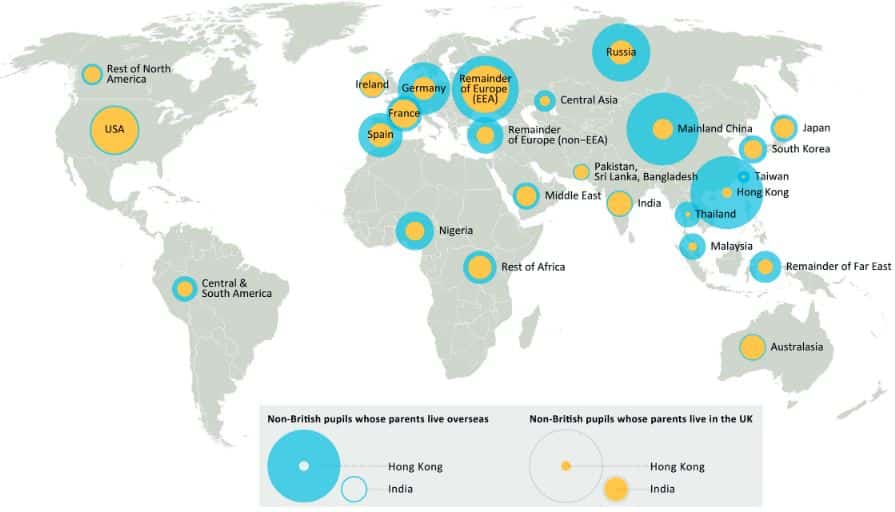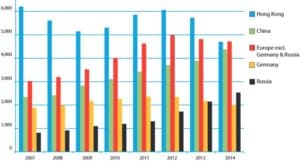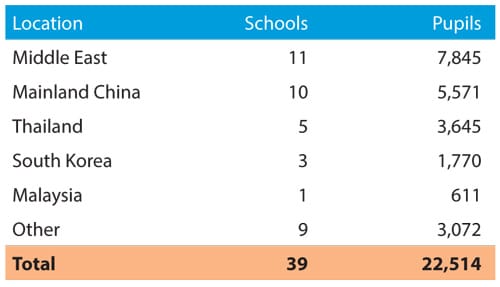2014 survey of British independent schools tracks expansion of overseas campuses
We reported last year on the dramatic growth in enrolment in international schools – that is, those primary and secondary schools that offer a curriculum different than that of the country in which they are based. The International School Community blog notes that global enrolment in such programmes has grown dramatically over the past decade and more, rising from roughly one million students in 2002 to more than three million by 2012.
“Ten years ago, the typical international school student was from an expatriate family,” notes the blog. “Today, that student is from a local family. The number of expatriate children attending international schools has not decreased, indeed there are many more. What has changed is the recognition by local families that international schools are a means of advancing to further education at some of the world’s best universities… Today 80% of students at international schools are local children.”
The UK consultancy ISC Research estimates that there are more than 6,500 English-medium schools worldwide, nearly half of which (3,292) are British. ISC Research Chairman Nicholas Brummitt has projected that by 2024, there will be over 12,000 international schools teaching 6.9 million students generating an annual fee income of over US$62 billion (£37 billion).
These broad market trends are front and centre this year in an annual survey that provides both a detailed snapshot of international student enrolment in British independent schools as well as the continued expansion of overseas campuses for UK-based schools. The latest census conducted by the Independent Schools Council (ISC) in January 2014 gathers responses from all 1,257 ISC member schools.


Branch campuses on the rise
In addition to such detailed findings on the international enrolment base at independent schools in the UK, the census also highlights a rapid expansion in the overseas campuses for leading British schools. Indeed, the number of overseas campuses of ISC members has nearly doubled over the past two years, and offshore enrolment will shortly exceed the number of international students attending independent schools in the UK.
“A growing number of ISC schools are operating overseas campuses,” notes the ISC census report. “In 2014 there are 39 such campuses educating a total of 22,514 pupils. This represents a rise on last year’s figures of 29 campuses with 18,784 pupils.”
A related report from TES Connect adds that leading private schools have opened campuses abroad since 1998, when Harrow School set up a branch in Bangkok, Thailand. Other schools including Dulwich College followed suit, which now has “a network of seven schools in Asia.” TES Connect also notes that "Wellington College built a ‘replica’ school mimicking its architecture in Tianjin, China, with another opening in Shanghai this August. Epsom College is opening its first overseas school in Kuala Lumpur, Malaysia in September, and Brighton College runs two campuses in the United Arab Emirates.”
The following table summarises the locations for the 39 offshore campuses reported by ISC members for 2014.

“The rise in the numbers of pupils [in ISC school branches abroad] is going to be quite dramatic and the numbers of pupils in our franchise schools will rapidly overtake overseas pupils being educated here. It might slightly depress demand in the UK, but for most independent schools it is being used to pay for bursaries and attract a wider range of people to their UK schools.”
For additional background, please see a summary infographic for a helpful snapshot of independent schools in the UK as well as the complete ISC census report for 2014.
















